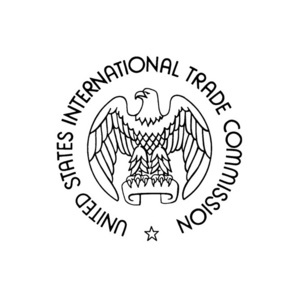Last hurdle cleared in US biodiesel trade case as ITC votes 4-0

April 3, 2018
BY The National Biodiesel Board
On April 3 the U.S. International Trade Commission voted 4-0 in favor of the National Biodiesel Board Fair Trade Coalition’s position that the industry has suffered because of unfairly dumped imports of biodiesel from Argentina and Indonesia. This affirmative vote on injury is the last remaining procedural hurdle before final antidumping orders can be issued later this month.
“This vote today finalizes the case to address the harm that unfair trade practices have had on the U.S. biodiesel industry,” said Donnell Rehagen, CEO of the NBB. “Foreign producers dumping product into American markets below cost has undermined the jobs and environmental benefits that U.S. biodiesel brings to the table. Establishing a level playing field for true competition in the market will allow the domestic industry the opportunity to put to work substantial underutilized production capacity.”
Last month, the U.S. Department of Commerce calculated final dumping rates ranging from 60.44 to 86.41 percent for Argentine producers, and 92.52 to 276.65 percent for Indonesian producers.
The NBB Fair Trade Coalition filed this antidumping petition in parallel to a countervailing duty petition to address a flood of subsidized and dumped imports from Argentina and Indonesia that resulted in market share losses and depressed prices for domestic producers. Biodiesel imports from Argentina and Indonesia surged by 464 percent from 2014 to 2016, taking 18.3 percentage points of market share from U.S. manufacturers. These surging, artificially low-priced imports prevented producers from earning adequate returns on their substantial investments and stifled the ability of U.S. producers to make further investments to serve a growing market.
A final determination by the commerce department in the companion countervailing duty determination was announced in early November, resulting in duty deposit rates of 71.45 to 72.28 percent for Argentina and 34.45 to 64.73 percent for Indonesia.
Advertisement
The U.S. biodiesel market supports nearly 64,000 jobs nationwide and more than $11 billion in economic impact. Every 100 million gallons of increased biodiesel production supports some 3,200 additional jobs. Producers nationwide are poised to expand production and hire new workers with steady growth in the industry.
Advertisement
Related Stories
The U.S. EPA on July 8 hosted virtual public hearing to gather input on the agency’s recently released proposed rule to set 2026 and 2027 RFS RVOs. Members of the biofuel industry were among those to offer testimony during the event.
The USDA’s Risk Management Agency is implementing multiple changes to the Camelina pilot insurance program for the 2026 and succeeding crop years. The changes will expand coverage options and provide greater flexibility for producers.
President Trump on July 4 signed the “One Big Beautiful Bill Act.” The legislation extends and updates the 45Z credit and revives a tax credit benefiting small biodiesel producers but repeals several other bioenergy-related tax incentives.
CARB on June 27 announced amendments to the state’s LCFS regulations will take effect beginning on July 1. The amended regulations were approved by the agency in November 2024, but implementation was delayed due to regulatory clarity issues.
SAF Magazine and the Commercial Aviation Alternative Fuels Initiative announced the preliminary agenda for the North American SAF Conference and Expo, being held Sept. 22-24 at the Minneapolis Convention Center in Minneapolis, Minnesota.
Upcoming Events










